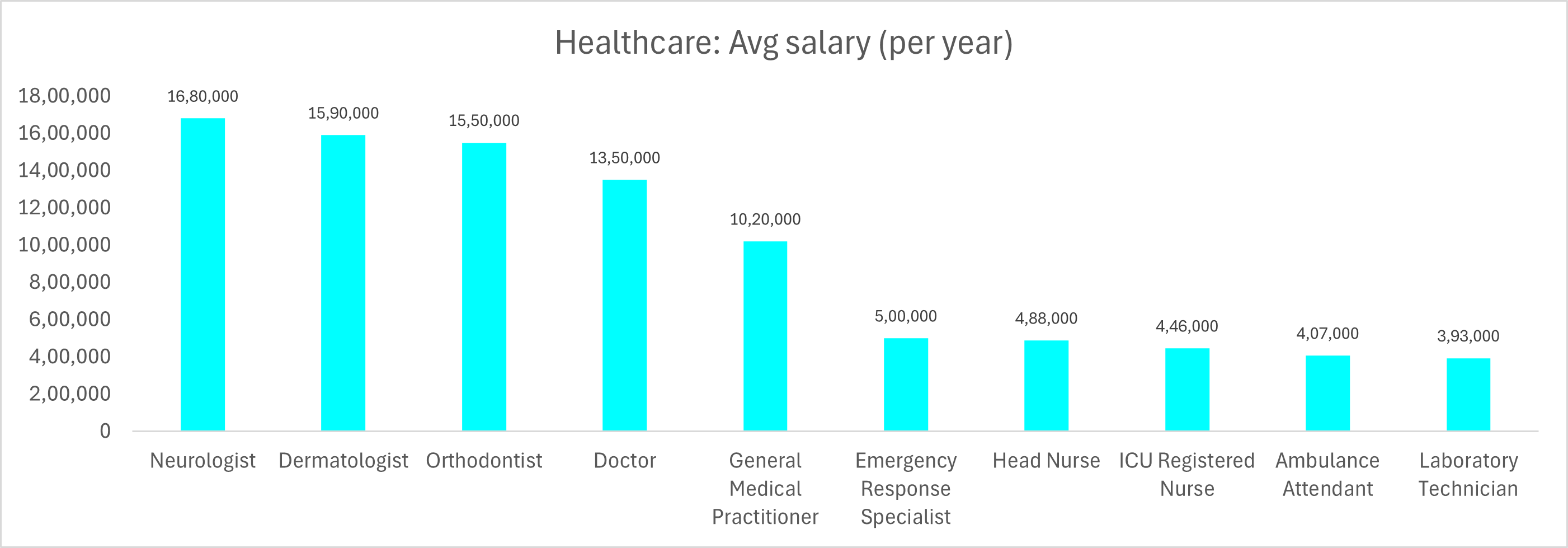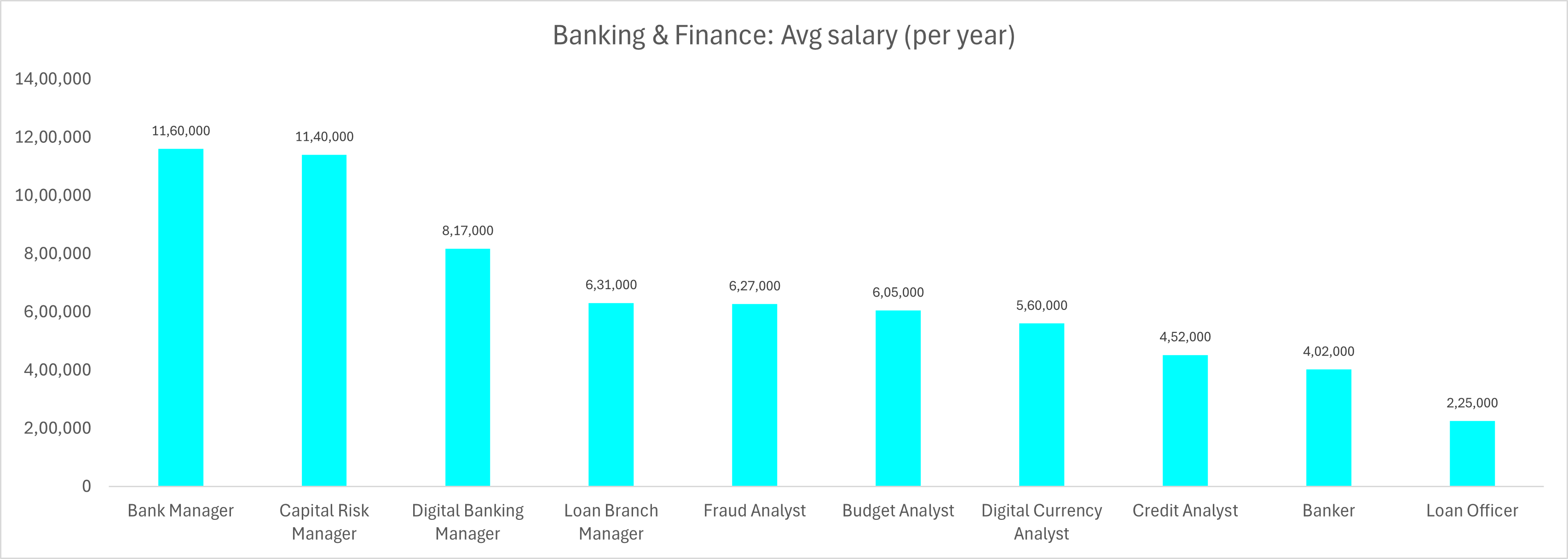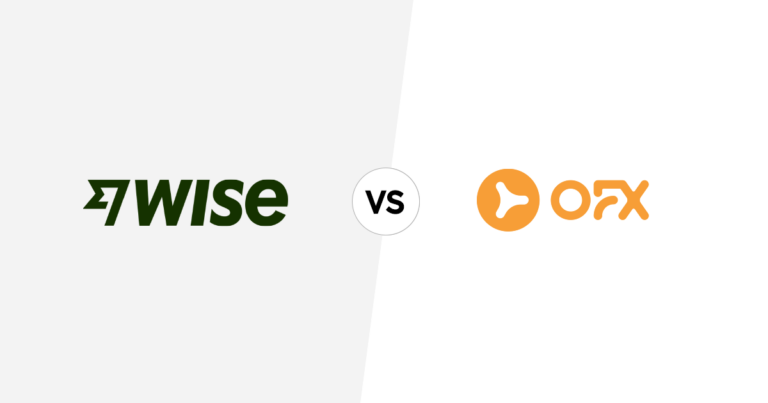Average Salary in Japan: Salaries by City and Experience

This article covers:
- Quick Overview
- Do you know?
- Japan salary trends: Factors affecting salary in Japan
- Average salary for full-time workers in Japan
- Average salary for part-time workers in Japan
- The average salary in Japan: citywise
- Highest paying job in Japan
- Lowest/minimum paying job in Japan
- Salary for experience
- Difference between median & average (mean) salary
- Before you go…
- FAQs
The average annual salary in Japan for a full-time worker is ¥6,540,000, while for a part-time worker, it is ¥708,000.
Well known for its progress in new-age technological developments and scientific innovations, Japan offers a diverse job market with competitive salary packages, making it an attractive destination for skilled professionals worldwide.
If you are looking for job opportunities in Japan, you must research the pay scale in Japan to know what you can expect in terms of salary for the industry and position you are interested in.
This guide offers insights into the salary data in Japan and the factors that influence the country’s wage trends.
Quick Overview
- The average salary in Japan per month for a full-time worker is ¥545,000 & ¥6,540,000 for a year without a tax cut.
- The average income in Japan for a part-time worker is ¥59,000 per month & ¥708,000 annually.
- Top Job Sectors in Japan
- Banking & Finance (average salary: ¥563,000)
- Information Technology (average salary: ¥530,000)
- Software Engineering (average salary: ¥514,000 )
- Top Companies in Japan: Toyota, Mitsubishi, Keyence, Tokyo Electron, Sony, Hitachi, Nintendo, Daiichi Sankyo, SoftBank, Nippon Telegraph and Telephone, KDDI, etc.
Do you know?
- Japan has a relatively low unemployment rate at only 2.6% of the population in 2023.[1]
- Japan had the highest adjusted net national income per capita in all of Asia in 2021 as per the World Bank.[2 ]
- Japan’s average consumer price inflation rate dropped from 3.3 in 2023 to 2.2 in 2024, as stated by the International Monetary Fund.[3]
Japan salary trends: Factors affecting salary in Japan
Various factors can affect the pay scale in Japan. From economic to social, each aspect uniquely influences how an individual’s salary is determined.
- Economic factors affecting salaries
The salary in Japan is influenced by economic indicators such as GDP and inflation. A growing GDP may increase the average income in Japan and demand more labour. However, inflation can diminish the purchasing power of salaries and affect the standard of living.
- Salary by Education Level and Skill Sets
Japan places a strong emphasis on education and specialised skills. Higher educational qualifications and advanced skill sets are highly valued and often result in higher salaries.
- Seniority-Based Pay System
Japan’s seniority-based pay system rewards employees based on their tenure at a company. This system is deeply rooted in Japanese corporate culture, and emphasises loyalty and long-term employment, offering job security and clear career progression. However, it can overlook performance and skill levels in salary considerations.
- Industry and Occupation Variations
Salaries vary widely across industries and job roles. Technology, finance, and healthcare often offer higher pay due to specialised skills and high demand. Specific roles within these industries are compensated based on their value and contribution to business success.
- Gender Pay Gap
Despite being progressive, Japan continues to face a significant gender pay gap. Historical and societal norms have contributed to salary disparities between men and women.
Average salary for full-time workers in Japan
Japan’s dynamic job market offers opportunities across major industries like IT, engineering, finance and manufacturing. Knowing Japan’s average income rate across industries can help you search for jobs and align your career goals with your financial expectations more effectively.
Here is a quick overview of Japan’s salary comparison across various industries:
Top Industries | Average annual salary | Per Hour Salary in Japan |
Software Engineering | ¥6,170,000 | ¥2,970 |
Healthcare | ¥9,210,000 | ¥4,430 |
Information Technology | ¥6,360,000 | ¥3,060 |
Human Resources | ¥5,950,000 | ¥2,860 |
Banking and Finance | ¥6,750,000 | ¥3,250 |
Source: SalaryExplorer
The following are details of the basic salary in Japan across diverse job roles under specific industries:
Software engineering: Avg salary – ¥6,170,000 per year

Job Profile | Average Income |
Applications Engineer | ¥452,000 |
Big Data Architect | ¥606,000 |
BigQuery Specialist | ¥646,000 |
Business Intelligence Analyst | ¥545,000 |
Business Intelligence Consultant | ¥717,000 |
Business Intelligence Manager | ¥738,000 |
Business Systems Analyst | ¥458,000 |
Data Quality Analyst | ¥501,000 |
Data-driven Designer | ¥467,000 |
Director of Application Development | ¥795,000 |
Source: SalaryExplorer
Human resources: Avg salary – ¥5,950,000 per year

Job Profile | Average Income |
Benefits Administrator | ¥337,000 |
Benefits Analyst | ¥407,000 |
Benefits Manager | ¥693,000 |
Benefits Specialist | ¥409,000 |
Chief Diversity and Inclusion Officer | ¥688,000 |
Chief Happiness Officer | ¥716,000 |
Chief Human Resources Officer | ¥891,000 |
Chief Listening Officer | ¥650,000 |
Chief People Officer | ¥889,000 |
Chief Remote Work and Collaboration Officer | ¥602,000 |
Source: SalaryExplorer
Healthcare: Avg Salary – ¥9,210,000 per year

Job Profile | Average Income |
Doctor | ¥1,350,000 |
Emergency Response Specialist | ¥500,000 |
Head Nurse | ¥488,000 |
Ambulance Attendant | ¥407,000 |
Orthodontist | ¥1,550,000 |
Dermatologist | ¥1,590,000 |
General Medical Practitioner | ¥1,020,000 |
ICU Registered Nurse | ¥446,000 |
Laboratory Technician | ¥393,000 |
Neurologist | ¥1,680,000 |
Source: SalaryExplorer
Information Technology: Avg salary – ¥6,360,000 per year

Job Profile | Average Income |
2nd Line Systems Engineer | ¥517,000 |
A/B Testing Specialist | ¥459,000 |
ABAP Developer | ¥472,000 |
Advertising Account Planner | ¥473,000 |
Android Developer | ¥516,000 |
Application Developer | ¥545,000 |
Applications System Specialist | ¥441,000 |
Artificial Intelligence / Machine Learning Analyst | ¥566,000 |
Back End Developer | ¥545,000 |
Big Data Architect | ¥606,000 |
Source: SalaryExplorer
Banking & Finance: Avg salary – ¥6,750,000 per year

Job Profile | Average Income |
Banker | ¥402,000 |
Bank Manager | ¥1,160,000 |
Budget Analyst | ¥605,000 |
Capital Risk Manager | ¥1,140,000 |
Credit Analyst | ¥452,000 |
Digital Banking Manager | ¥817,000 |
Digital Currency Analyst | ¥560,000 |
Fraud Analyst | ¥627,000 |
Loan Branch Manager | ¥631,000 |
Loan Officer | ¥225,000 |
Source: SalaryExplorer
Average salary for part-time workers in Japan
The average salary for Part-time workers in Japan is around ¥59,000 per month.
Getting part-time jobs is a great way for students to earn money while managing their academic commitments. These jobs typically have an average pay ranging between ¥900 to ¥1200 per hour.
Here is a detailed overview of the different types of part-time jobs available for students and the associated average pay on an hourly basis:
Type of Job | Average Pay per Hour |
Convenience Store Staff | ¥900 – ¥1,200 |
Restaurant Server | ¥950 – ¥1,300 |
English Tutor | ¥1,500 – ¥3,000 |
Retail Assistant | ¥900 – ¥1,200 |
Office Assistant | ¥1,000 – ¥1,500 |
Delivery Driver | ¥1,000 – ¥1,400 |
Call Center Agent | ¥1,000 – ¥1,500 |
Hotel Staff | ¥950 – ¥1,300 |
The average salary in Japan: citywise
The provincial salary variations in Japan are as follows:
City | Average monthly salary after tax |
Tokyo | ¥437,000 |
Yokohama | ¥378,000 |
Osaka | ¥318,000 |
Nagoya | ¥321,000 |
Fukuoka | ¥229,000 |
Kyoto | ¥241,000 |
Source: LivingCost
Highest paying job in Japan
In Japan, highly lucrative career paths include leadership roles such as President or Country Manager. These positions command high compensation due to the dynamic skills, industry knowledge, and experience they require.
Here is a list of some of the highest-paying jobs in Japan:
Job title | Industry | Average Salary |
President / Country Manager | Enterprise Technology (Large) | ¥50,000,000 – ¥100,000,000 |
President / Country Manager | Enterprise Technology (Small) | ¥25,000,000 – ¥70,000,000 |
Country Manager/ FinTech President | Banking & Financial Services | ¥23,000,000 – ¥60,000,000 |
Lead Partner (Financial Advisory) | Consultation, Project and Change Management | ¥30,000,000 – ¥50,000,000 |
Lead Partner (IT Consultation) | Consultation, Project and Change Management | ¥30,000,000 – ¥50,000,000 |
Lead Partner (Management) | Consultation, Project and Change Management | ¥30,000,000 – ¥50,000,000 |
Chief Operations Officer (COO) | Banking & Financial Services | ¥25,000,000 – ¥50,000,000 |
Chief Financial Officer (CFO) | Accounting and Finance | ¥25,000,000 – ¥50,000,000 |
Head of Sales/ Sales Director | Sales & Marketing | ¥25,000,000 – ¥50,000,000 |
Head of Sales/ FinTech Sales Director | Technology | ¥24,000,000 – ¥50,000,000 |
Source: Morgan Mckinley
Lowest/minimum paying job in Japan
In Japan, the lowest minimum wage is around ¥663 per hour, but this varies by industry and location. There are two types: one set by industry standards and another by regional standards, overseen by the Chief of the Prefectural Labor Standards Office or the Minister of Labor.
Here’s an overview of the top 10 prefectural minimum wages in Japan.
Prefecture | Minimum Wage |
Tokyo | ¥1,113 |
Kanagawa | ¥1,112 |
Osaka | ¥1,064 |
Saitama | ¥1,028 |
Aichi | ¥1,027 |
Chiba | ¥1,026 |
Kyoto | ¥1,008 |
Hyogo | ¥1,001 |
Mie | ¥973 |
Shizuoka | ¥984 |
Source: Japan Ministry of Health, Labour and Welfare.
Tokyo reportedly has the highest minimum wage bracket, with an hourly wage of around ¥1,113.
Here is a quick overview of the tentatively lowest-paying jobs across various industries in Japan and the associated monthly wages.
Job types | Industry | Average monthly salary |
Waiter | Hospitality | ¥163,000 |
Customer Service Representative | Retail | ¥201,000 |
Automotive Mechanic | Automobile | ¥203,000 |
Nursery Teacher | Education | ¥203,000 |
Retail Cashier | Retail | ¥207,000 |
Call Center Representative | Retail | ¥207,000 |
Human Resources Officer | Human Resources | ¥331,000 |
Source: Timedoctor
Salary for experience
In Japan, experience is highly valued alongside quality education, reflecting the country’s respect for seniority and expertise. Employers prioritise years of experience, leading to significant salary increases as professionals progress. Advanced skills acquired on the job also contribute to salary growth.
Experienced individuals in higher positions handle complex tasks and project management, ensuring operational efficiency. Many take on leadership roles, boosting team productivity and company performance. These professionals are rewarded for their exceptional skills and extensive industry experience.
For example, a solutions engineer with limited experience may earn ¥8,000,000 annually, reflecting ongoing skill development. A more seasoned candidate with the required skills could earn ¥11,000,000, while a highly experienced professional might command ¥14,000,000 annually, reflecting their seniority and advanced expertise.
Difference between median & average (mean) salary
Understanding the difference between Japan’s median income and mean income is essential for accurately analysing your salary. Confusion between these two salary estimates can affect your financial goals and budgeting.
The median salary is like the middle number in a group of salaries, and it’s not changed much by high or low numbers.
The mean salary on the other hand is the total of all salaries divided by the number of values.
Here is an example for better understanding:
Employee 1 | ¥5,000 |
Employee 2 | ¥10,000 |
Employee 3 | ¥15,000 |
Employee 4 | ¥20,000 |
Employee 5 | ¥29,000 |
To calculate the mean income, add all the salaries and divide by the number of employees.
(¥5,000 + ¥10,000 + ¥15,000 + ¥20,000 + ¥29,000)/5 = ¥15,800
Hence, the mean or average income for this dataset is ¥15,800.
To find the median income, arrange all salaries from lowest to highest. The median is the salary right in the middle of the list, in this case, ¥15,000.
In 2024, while the mean or average salary is ¥545,000, Japan’s median income is ¥472,000.
Before you go…
Japan’s robust economy offers job seekers a diverse market with competitive salaries across industries. To capitalise on these opportunities, start planning early. Before moving to Japan, it’s crucial to understand the pay scale in Japan to manage salary expectations and budgeting effectively. For international professionals, having a reliable service like Instarem to send money to India from Japan.
Instarem offers fast processing* and affordable# transaction rates with a transparent fee structure with several rewards for each successful transaction you make. This makes Instarem an excellent choice for managing your finances while working abroad.
You can now download the Instarem App from App Store and Google Play for easy money transfer at affordable# rates.
FAQs
Q. What is the current average salary in Japan?
The current average salary in Japan per month for a full-time worker is ¥545,000 & ¥6,540,000 for a year without a tax cut.
Q. What is a good salary in Japan?
A salary around or above the current average of ¥545,000 per month ensures a comfortable lifestyle in Japan.
Q. Which job has the highest salary in Japan?
A Company President or a Country Manager has the highest salary in Japan.
Q. Which job has the lowest salary in Japan?
Waiters have the lowest salary in Japan.
Q. What is the average salary in Japan for IT?
The average salary in Japan for IT is around ¥530,000 per month.
Q. What is the average salary in Japan per month for an Indian?
The average salary of an Indian national depends on the job and the location.
Q. How do you find a job in Japan?
You can find a job in Japan by applying on websites like LinkedIn, JobsInJapan, Daijob, etc.
Other related blogs:
Germany – Average Salary in Germany
Australia – Average Salary in Australia
USA – Average Salary in USA
Canada – Average Salary in Canada
UK – Average Salary in UK
Singapore – Average salary in Singapore
Ireland – Average Salary in Ireland
Malaysia – Average salary in Malaysia
Disclaimers:
This article is intended for informational purposes only. All details are accurate at the time of publishing. Instarem has no affiliation or relationship with products or vendors mentioned.
* Fast meaning 75% of our transactions are completed in 15 minutes. Depending on the funding method.
#When it comes to affordable exchange rates and fees, it’s worth noting that the cost will vary depending on how you choose to fund your transactions. Credit card funding and bank transfer fees can differ significantly.
The values were taken on 21st and 22nd June from different websites and may be subject to change.
Citations
 Get the app
Get the app


























